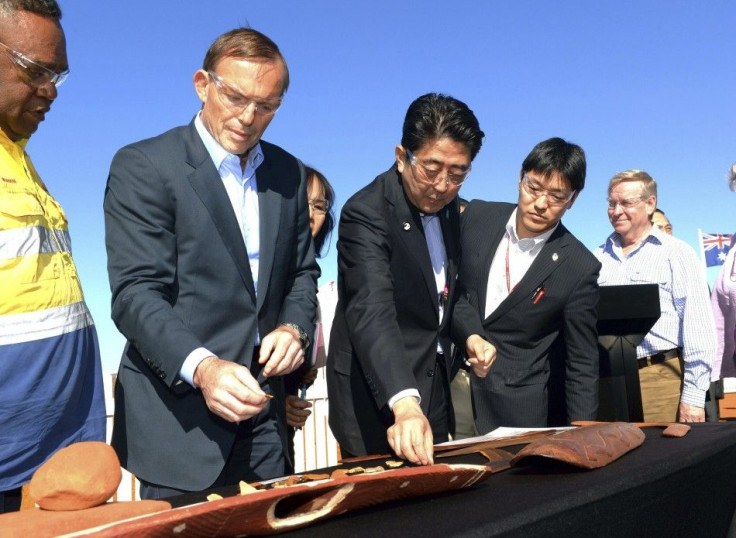Australia Advised to 'Remain Neutral' in Event of China-Japan Armed Conflict

Australians do not want their country involved in any kind of conflict between Japan and China. A poll revealed majority of citizens want Australia to remain neutral in the event of an armed conflict even if the United States will support Japan.
The survey commissioned by the Australia-China Relations Institute has found that 71 percent of Australians want their country to not take sides if tensions between China and Japan escalate into an armed conflict over disputed islands and maritime territory in the East China Sea. About 65 percent of the respondents said Australia should refuse if Prime Minister Tony Abbott was asked for assistance, The Guardian reported. The territorial dispute has become a hot issue in the region with an earlier ACRI report highlighting several possible scenarios that could lead to an armed conflict between Australia's two biggest trading partners.
Bob Carr, ACRI director and former foreign minister, said the poll had underlined what Australia should do when it is time to make a strategic decision and remain a neutral party. He explained that the Anzus treaty or the security pact between Australia, New Zealand and the U.S. only requires a consultation from the government. Carr said Australia should make it known that it does not want to get involved in the conflict between the two countries.
It was previously reported that Mr Abbott had angered Beijing with statements allegedly alluding to Australia's support for Japan amid the dispute. Carr disagreed with the reaction and said that the government was truly "impeccably neutral" in the territorial dispute.
The Australian has reported that Mr Abbott had named Japan as its "best friend in Asia" in his early days as prime minister. Carr had claimed the delayed decision on Australia's next submarine contract may also be interpreted as a sign that the country was siding with Japan when it comes to security issues in the region.
Previous reports have speculated on Australia's largest defence contract to be awarded to Japan's Soryu class submarine without a competitive process despite other potential manufacturers like Germany and France. Carr feared that if the Abbott government does not want to "go to tender", the move may be seen as another telling statement of Australia's strategic decision.
Contact email: r.su@ibtimes.com.au






